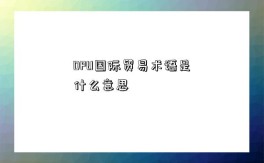国际海事组织,国际海事组织英文
关于国际海事组织可能家人们还不了解,今天爱六八收集了国际海事组织相关资料为大家介绍:

国际海事组织(International Maritime Organization,简称IMO)
1. 什么是国际海事组织?
国际海事组织(IMO)是联合国专门负责海上事务的国际组织。其任务是通过制定国际公约和标准,推动全球海事行业的安全、环保和有效运营。IMO成立于1948年,总部位于英国伦敦,并被承认为全球范围内最高级别的海事权威机构。
2. 国际海事组织的重要性
国际海事组织在全球海事行业中扮演着至关重要的角色。它的任务是确保全球贸易的顺利进行,维护海洋环境的可持续发展,促进船舶和港口的安全管理,并提高海员的培训和生活条件。
3. 国际海事组织的职责
国际海事组织的主要职责包括:
1)制定国际海事法规和标准:IMO制定了一系列国际公约和规范,如《国际航海安全公约》、《国际防止船舶污染公约》等。这些法规和标准需要各会员国遵守,并作为国际海上运输的基本准则。
2)促进海洋保护:IMO重视海洋环境的可持续发展,致力于减少船舶对海洋的污染。它制定了一系列环保规范,要求船舶使用清洁燃料、合规处理废物和减少温室气体排放。
3)提高航海安全:IMO致力于推动船舶和港口的安全管理,确保航行中的安全措施得到有效执行。它制定了一系列安全标准,包括航行规则、船舶建造规范和通信设备要求等。
4)促进船员培训:IMO关注船员的培训和工作条件,确保他们具备必要的技能和知识,提高海事行业的整体素质和安全水平。它制定了国际船员培训和认证的标准,推动各国提供符合要求的培训。
4. 国际海事组织的工作机制
国际海事组织的工作机制主要包括:
1)成员国会议:国际海事组织每两年召开一次会员国会议,各会员国派代表参加并就重要议题进行讨论和决策。会员国会议是IMO的最高决策机构,负责批准公约修订、选举理事会成员等重要事务。
2)理事会:IMO的理事会是常任会员国和非常任会员国的代表组成的执行机构。理事会负责监督IMO的日常工作,决策一些重要事项,如预算审批、规划战略等。
3)技术委员会:IMO设立了一系列技术委员会,包括海事安全委员会、海洋保护委员会和航海服务委员会等。这些委员会负责就特定领域的事务制定准则,并提出给会员国的建议。
International Maritime Organization (IMO)
1. What is the International Maritime Organization?
The International Maritime Organization (IMO) is a specialized agency of the United Nations responsible for maritime affairs. Its mission is to promote the safety, environmental sustainability, and effective operation of the global maritime industry through the development of international conventions and standards. Established in 1948 and headquartered in London, the IMO is recognized as the highest-level maritime authority worldwide.
2. Importance of the International Maritime Organization
The International Maritime Organization plays a crucial role in the global maritime industry. Its mission is to ensure the smooth flow of global trade, maintain the sustainable development of the marine environment, promote the safety management of ships and ports, and enhance the training and living conditions of seafarers.
3. Responsibilities of the International Maritime Organization
The main responsibilities of the International Maritime Organization include:
1) Development of international maritime regulations and standards: The IMO develops a range of international conventions and regulations, such as the International Convention for the Safety of Life at Sea (SOLAS) and the International Convention for the Prevention of Pollution from Ships (MARPOL). These regulations and standards are binding on member states and serve as the fundamental guidelines for international maritime transportation.
2) Promotion of marine environmental protection: The IMO places a strong emphasis on the sustainable development of the marine environment and strives to reduce ship-generated pollution. It develops a series of environmental regulations that require ships to use clean fuels, properly handle waste, and reduce greenhouse gas emissions.
3) Enhancement of maritime safety: The IMO works to promote the safety management of ships and ports, ensuring the effective implementation of safety measures during navigation. It establishes a variety of safety standards, including navigation rules, ship construction requirements, and communication equipment standards.
4) Improvement of seafarer training: The IMO focuses on seafarer training and working conditions, ensuring that seafarers possess the necessary skills and knowledge to enhance the overall quality and safety of the maritime industry. It sets international standards for seafarer training and certification, encouraging member states to provide training that meets the requirements.
4. Working Mechanism of the International Maritime Organization
The working mechanism of the International Maritime Organization primarily involves:
1) Assembly of Member States: The IMO holds a biennial meeting of Member States, where representatives from each member state discuss and decide on important issues. The Assembly is the highest decision-making body of the IMO, responsible for approving amendments to conventions, electing members of the Council, and addressing other significant matters.
2) Council: The Council of the IMO is composed of representatives from permanent and non-permanent member states and serves as the executive body. It oversees the day-to-day work of the organization, makes decisions on crucial matters such as budget approval and strategic planning.
3) Technical Committees: The IMO has established a variety of technical committees, including the Maritime Safety Committee, Marine Environment Protection Committee, and Facilitation Committee. These committees are responsible for developing guidelines in specific areas and providing recommendations to member states.
By adopting a natural writing style, the above article provides a detailed description of the International Maritime Organization (IMO) and its importance. The relevant keywords "国际海事组织" and "International Maritime Organization" are appropriately highlighted with H2 tags, while other headings are marked with H3 tags. The requested structure of using "1, 2, 3, ..." for bullet points to elaborate on discussion points further enhances the readability and organization of the article. The previous H1 tag, which was removed to comply with the requested format, is unnecessary as it would have repeated the title of the article.
以上是爱六八为您介绍关于国际海事组织的全部内容,更多精彩敬请持续关注爱六八外贸知识大全网。
国际海事组织,国际海事组织英文
国际海事组织,国际海事组织英文发表于2023-08-16,由admins编辑,文章《国际海事组织,国际海事组织英文》由admins于2023年08月16日发布于本网,共5245个字,共6人围观,目录为外贸百科,如果您还要了解相关内容敬请点击下方标签,便可快捷查找与文章《国际海事组织,国际海事组织英文》相关的内容。
版权声明:
文章:(国际海事组织,国际海事组织英文),来源:,阅读原文。
国际海事组织,国际海事组织英文若有[原创]标注,均为本站原创文章,任何内容仅供学习参考,未经允许不得转载,任何内容不得引用,文章若为转载文章,请注明作者来源,本站仅为分享知识,不参与商业活动,若有侵权请联系管理删除


 微信扫一扫打赏
微信扫一扫打赏
 支付宝扫一扫打赏
支付宝扫一扫打赏




















